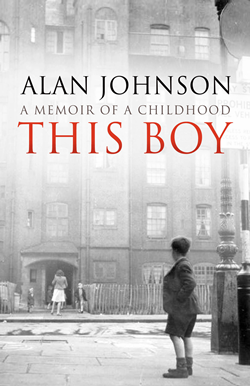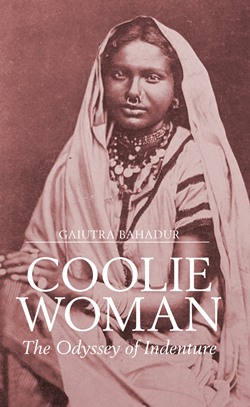Posted on April 24, 2015 by The Orwell Prize -

The entry exposes the policy of entrusting the care of some of the most vulnerable people in society to unaccountable firms who have an interest in covering up mistreatment.
The video component was embedded in the online versions of the entry that appeared in The Observer on 18 May 2014. Two linked articles appeared in that newspaper edition, a detailed investigation that is the submitted entry and a front page article setting out the concerns.
Journalistic Writing
Serco and a search for the truth – 5/17/2014, The Observer newspaper and the Guardian online
Video
‘They are treating us like animals’ – 5/17/2014, Guardian online
Posted on April 24, 2015 by The Orwell Prize -

This year, George Arbuthnott has spearheaded a series of hard-hitting campaigns and public interest exposés that have forced the government into change.
His campaign to highlight modern slavery in Britain has continued apace. In January, he revealed migrants in the UK’s fishing fleet were being systematically exploited and in the spring he disclosed Eastern European slaves had been forced to work on £2 a day at a bed factory in northern England supplying two of Britain’s biggest retailers. The firm’s owner later became the first UK boss to be charged with human trafficking. Arbuthnott then informed the Home Office the ancestor of the abolitionist William Wilberforce said his forefather would be saddened by its persistent refusal to act and, a day later, the government announced big business would indeed be forced to publicly report on its anti-slavery efforts.
Journalistic Writing
Slaves in peril on the sea – 1/19/2014, The Sunday Times Magazine
Video
Slaves in peril on the sea – 1/19/2014, Sunday Times multimedia team production
Posted on March 25, 2015 by The Orwell Prize -

Rebecca’s work has been published by the Dominion of New York, the Guardian, the New Statesman, the Washington Post, the New Internationalist, the Independent, and Kvinfo. She is a Winston Churchill Travel Fellow, and spent her fellowship reporting on immigration and asylum in Greece, Italy, Spain, France and the UK. Rebecca is writer in residence at Lacuna, a new human rights magazine. She has also worked as an editorial assistant and special correspondent in the Washington Post’s London office, and as a business journalist writing and reporting on private finance initiatives for the Partnerships Bulletin magazine. Taken from Rebecca Omonira-Oyekanmi
Articles submitted
- Refugee women in the UK: fighting back from behind bars – People on the Move, Open Democracy, 24/02/2014
- Rats in the lunchbox, mould in the mattress: living in squalor in London – Our Kingdom, Open Democracy, 14/05/2014
- Down the Rabbit Hole: single parenthood in austerity Britain – Lacuna, 23/05/2014
- How to build a law centre – Lacuna, 18/07/2014
- Black and Dangerous – Our Kingdom, Open Democracy, 30/09/2014
- Politicians like Calais’ mayor should stop telling tales – New Statesman, 30/10/2014
Posted on March 25, 2015 by The Orwell Prize -

In a little over a generation the bones and sinews of the British economy – rail, energy, water, postal services, municipal housing – have been sold to remote, unaccountable private owners, often from overseas. In a series of brilliant portraits the award-winning novelist and journalist James Meek shows how Britain’s common wealth became private, and the impact it has had on us all: from the growing shortage of housing to spiralling energy bills.
Meek explores the human stories behind the incremental privatization of the nation over the last three decades. He shows how, as our national assets are sold, ordinary citizens are handed over to private tax-gatherers, and the greatest burden of taxes shifts to the poorest. In the end, it is not only public enterprises that have become private property, but we ourselves.
Urgent, powerfully written and deeply moving, this is a passionate anatomy of the state of the nation: of what we have lost and what losing it cost us – the rent we must pay to exist on this private island.
Taken from Verso
An extract from Private Island is available here: Sale of the century: the privatisation scam
Posted on March 25, 2015 by The Orwell Prize -

When Rana Dasgupta arrived in Delhi at the turn of the twenty-first century, he had no intention of staying for long, but the city beguiled him – he ‘fell in love and in hate with it’ – and fifteen years later, Delhi is still his home. Over these fifteen years, he has watched as the tumult of destruction and creation which accompanies India’s economic boom transformed the face of the city. In Capital, he explores the life-changing consequences for Delhi’s people, meeting with billionaires and bureaucrats, drug dealers and metal traders, slum dwellers and psychoanalysts. These encounters, interwoven with over a century of history, plunge us into Delhi’s intoxicating, sometimes terrifying, story of capitalist transformation – one that has repercussions not only for India, but for everybody’s future. Taken from Canongate
Posted on March 25, 2015 by The Orwell Prize -

At first, it seemed like a small story. The royal editor of the News of the World was caught listening to the voicemail messages of staff at Buckingham Palace. In 2007 he and a private investigator were sentenced to prison and the case was closed. But Nick Davies felt sure there was more to it and began his painstaking investigation which ultimately exposed a world of crime and cover-up, of fear and favour – reaching all the way to the top. This book is the definitive, inside story of one of the major scandals of our age. Drawing on exclusive interviews with private investigators, journalists, politicians, police officers and Murdoch executives, it blows the lid off Fleet Street, Scotland Yard – and Downing Street. It tells for the first time how Davies and a network of rebel lawyers, MPs and celebrities took on Rupert Murdoch, one of the most powerful men in the world. It takes us into the newsroom of the News of the World and exposes the bullying and law-breaking that went on there, and into the underworld of the private investigators who hacked phones, listened to live calls and bribed the police. It discloses how News International attempted to protect itself with lies and money; how the press regulator floundered; and the history of failure and official secrecy inside police ranks. Above all, this book paints an intimate portrait of the power elite which gave Murdoch privileged access to government, and allowed him and his people to intimidate anyone who stood up to them. Hack Attack is a nail-biting account of an investigative journalist’s quest, and is a shining example of the might of good journalism. It tells the story of what happened when truth caught up with power. Taken from Random House
Posted on March 25, 2015 by The Orwell Prize -

Dan Davies has spent more than a decade on a quest to find the real Jimmy Savile, and interviewed him extensively over a period of seven years before his death. In the course of his quest, he spent days and nights at a time quizzing Savile at his homes in Leeds and Scarborough, lunched with him at venues ranging from humble transport cafes to the Athenaeum club in London and, most memorably, joined him for a short cruise aboard the QE2. Dan thought his quest had come to an end in October 2011 when Savile’s golden coffin was lowered into a grave dug at a 45-degree angle in a Scarborough cemetery. He was wrong. In the last two and a half years, Dan has been interviewing scores of people, many of them unobtainable while Jimmy was alive. What he has discovered was that his instincts were right all along and behind the mask lay a hideous truth. Jimmy Savile was not only complex, damaged and controlling, but cynical, calculating and predatory. He revelled in his status as a Pied Piper of youth and used his power to abuse the vulnerable and underage, all the while covering his tracks by moving into the innermost circles of the establishment. Taken from Quercus
Posted on March 25, 2015 by The Orwell Prize -

The late 1950s was an action-packed, often dramatic time in which the contours of modern Britain began to take shape. These were the ‘never had it so good’ years, when the Carry On film series and the TV soap Emergency Ward 10 got going, and films likeRoom at the Top and plays like A Taste of Honey brought the working class to the centre of the national frame; when the urban skyline began irresistibly to go high-rise; when CND galvanised the progressive middle class; when ‘youth’ emerged as a cultural force; when the Notting Hill riots made race and immigration an inescapable reality; and when ‘meritocracy’ became the buzz word of the day. The consequences of this ‘modernity’zeitgeist, David Kynaston argues, still affect us today. Taken from Bloomsbury
Posted on March 25, 2015 by The Orwell Prize -

Kim Sengupta is the Defence and Diplomatic Correspondent for The Independent. He covers international and domestic news and his extensive reporting from around the world has included many of the major conflicts in recent times.
Articles submitted
Tortured Ukrainian’s widow mourns as Russia vows to defend its interests – The Independent, 24/04/2014 ‘A maelstrom of bombs, missiles and chaos’ – The Independent, 15/08/2014 Gunfire, paranoia and football on the base that plays host to two armies – The Independent, 05/03/2014 The Odessa file: how a cultural melting pot boiled over into sectarian strife – The Independent, 08/05/2014 Ukraine: the storm breaks – The Independent, 10/05/2014 Four months after the bombardment, Gaza’s wounds are yet to heal – The Independent, 22/12/2014
Posted on March 25, 2015 by The Orwell Prize -

Rosie Blau is China correspondent for The Economist, based in Beijing. She joined The Economist in May 2011 as a reporter on the Britain section, where she covered energy, transport and a range of other areas. She was then seconded to Intelligent Life as Associate Editor. Prior to joining The Economist she worked at the Financial Times. Her jobs there included Books Editor, Leader Writer and Assistant World News Editor. She served as a judge for the Man Booker Prize for Fiction in 2010. Taken from The Economist
Articles submitted
Empire of the Pig – The Economist, 20/12/2014 The Power of Xi Jinping – The Economist, 20/09/2014 The art is red – The Economist, 20/12/2014 A matter of honours – The Economist, 22/11/2014
Posted on March 25, 2015 by The Orwell Prize -

On June 4, 1989, People’s Liberation Army soldiers opened fire on unarmed civilians in Beijing, killing untold hundreds of people. A quarter-century later, this defining event remains buried in China’s modern history, successfully expunged from collective memory. In The People’s Republic of Amnesia, NPR and former BBC correspondent Louisa Lim charts how the events of June 4th changed China, and how China changed the events of June 4th by rewriting its own history. Lim reveals new details about those fateful days, including how one of the country’s most senior politicians lost a family member to an army bullet, as well as the inside story of the young soldiers sent to clear Tiananmen Square. She also introduces us to individuals whose lives were transformed by the events of Tiananmen Square, such as a founder of the Tiananmen Mothers, whose son was shot by martial law troops; and one of the most important government officials in the country, who post-Tiananmen became one of its most prominent dissidents. And she examines how June 4th shaped China’s national identity, fostering a generation of young nationalists, who know little and care less about 1989. For the first time, Lim uncovers the details of a brutal crackdown in a second Chinese city that until now has been a near-perfect case study in the state’s ability to rewrite history, excising the most painful episodes. By tracking down eyewitnesses, discovering US diplomatic cables, and combing through official Chinese records, Lim offers the first account of a story that has remained untold for a quarter of a century. The People’s Rebulic of Amnesia is an original, powerfully gripping, and ultimately unforgettable book about a national tragedy and an unhealed wound. Taken from Oxford University Press
Posted on March 25, 2015 by The Orwell Prize -

Peter Ross is a journalist based in Glasgow and the author of Daunderlust – Dispatches From Unreported Scotland, which was published in 2014. He writes for The Guardian and Scotland on Sunday.
Articles submitted
- From canny scepticism to our chance to dream – Scotland on Sunday, 24/08/2014
- Two to tango or last waltz – Scotland on Sunday, 31/08/2014
- It Could Be Us – Scotland on Sunday, 07/09/2014
- Growing pains – Scotland on Sunday, 14/09/2014 Tears and loathing – Scotland on Sunday, 21/09/2014
Posted on March 25, 2015 by The Orwell Prize -

Mary Riddell is a columnist and political interviewer for the Daily Telegraph. She studied modern languages at Nottingham University and began her journalistic career in Lincolnshire, Oxford and Aberdeen before moving to London. Her previous jobs include women’s editor and assistant editor of the Daily Mirror and deputy editor of Today. Taken from telegraph.co.uk
Articles submitted
Posted on March 25, 2015 by The Orwell Prize -

Since 2005, Martin Chulov has been reporting for The Guardian from the Middle East, covering crises across the Arab world.
Articles submitted
Posted on May 21, 2014 by The Orwell Prize -

Alan Johnson’s childhood was not so much difficult as unusual, particularly for a man who was destined to become Home Secretary. Not in respect of the poverty, which was shared with many of those living in the slums of post-war Britain, but in its transition from two-parent family to single mother and then to no parents at all…
This is essentially the story of two incredible women: Alan’s mother, Lily, who battled against poor health, poverty, domestic violence and loneliness to try to ensure a better life for her children; and his sister, Linda, who had to assume an enormous amount of responsibility at a very young age and who fought to keep the family together and out of care when she herself was still only a child.
Played out against the background of a vanishing community living in condemned housing, the story moves from post-war austerity in pre-gentrified Notting Hill, through the race riots, school on the Kings Road, Chelsea in the Swinging 60s, to the rock-and-roll years, making a record in Denmark Street and becoming a husband and father whilst still in his teens.
This Boy is one man’s story, but it is also a story of England and the West London slums which are so hard to imagine in the capital today. No matter how harsh the details, Alan Johnson writes with a spirit of generous acceptance, of humour and openness which makes his book anything but a grim catalogue of miseries.
Taken from Penguin.
Posted on April 24, 2014 by The Orwell Prize -

Not For Turning is the first volume of Charles Moore’s authorized biography of Margaret Thatcher, the longest serving Prime Minister of the twentieth century and one of the most influential political figures of the postwar era. Charles Moore’s biography of Margaret Thatcher, published after her death on 8 April 2013, immediately supercedes all earlier books written about her. At the moment when she becomes a historical figure, this book also makes her into a three dimensional one for the first time. It gives unparalleled insight into her early life and formation, especially through her extensive correspondence with her sister, which Moore is the first author to draw on. It recreates brilliantly the atmosphere of British politics as she was making her way, and takes her up to what was arguably the zenith of her power, victory in the Falklands. (This volume ends with the Falklands Dinner in Downing Street in November 1982.) Moore is clearly an admirer of his subject, but he does not shy away from criticising her or identifying weaknesses and mistakes where he feels it is justified. Based on unrestricted access to all Lady Thatcher’s papers, unpublished interviews with her and all her major colleagues, this is the indispensable, fully rounded portrait of a towering figure of our times. Taken from Penguin
Posted on April 24, 2014 by The Orwell Prize -

In 1903 a Brahmin woman sailed from India to Guyana as a ‘coolie’, the name the British gave to the million indentured labourers they recruited for sugar plantations worldwide after slavery ended. The woman, who claimed no husband, was pregnant and travelling alone. A century later, her great-granddaughter embarks on a journey into the past, hoping to solve a mystery: what made her leave her country? And had she also left behind a man? Gaiutra Bahadur, an American journalist, pursues traces of her great-grandmother over three continents. She also excavates the repressed history of some quarter of a million female coolies. Disparaged as fallen, many were runaways, widows or outcasts, and many migrated alone. Coolie Woman chronicles their epic passage from Calcutta to the Caribbean, from departures akin either to kidnap or escape, through sea voyages rife with sexploitation, to new worlds where women were in short supply. When they exercised the power this gave them, some fell victim to the machete, in brutal attacks, often fatal, by men whom they spurned. Sex with overseers both empowered and imperiled other women, in equal measure. It also precipitated uprisings, as a struggle between Indian men and their women intersected with one between coolies and their overlords. Taken from Hurst Books
Posted on April 24, 2014 by The Orwell Prize -

In 1949 Mao Zedong hoisted the red flag over Beijing’s Forbidden City. Instead of liberating the country, the communists destroyed the old order and replaced it with a repressive system that would dominate every aspect of Chinese life. In an epic of revolution and violence which draws on newly opened party archives, interviews and memoirs, Frank Dikötter interweaves the stories of millions of ordinary people with the brutal politics of Mao’s court. A gripping account of how people from all walks of life were caught up in a tragedy that sent at least five million civilians to their deaths. Taken from Bloomsbury

















